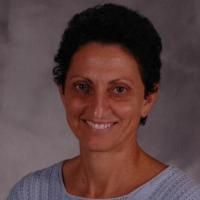Physical Activity Counseling Promotes Physical and Psychological Resilience in Older Veterans with Posttraumatic Stress Disorder.
Date
2016-10
Journal Title
Journal ISSN
Volume Title
Repository Usage Stats
views
downloads
Citation Stats
Abstract
Individuals with posttraumatic stress disorder (PTSD) have elevated rates of morbidity, and a sedentary lifestyle can cause and aggravate the physical health needs of adults with PTSD. The primary aim of this paper was to explore the impact of physical activity (PA) counseling (vs. usual care) on physical and psychological outcomes among individuals with PTSD. A secondary aim was to compare these arm effects between those with and without PTSD.
Methods
Older (>60 years) overweight veterans with impaired glucose tolerance were randomly assigned to an intervention or a usual care control arm. Of the 302 participants who underwent randomization, 67 (22%) had PTSD. Participants in the intervention arm received one in-person activity counseling session followed by regular PA telephone counseling over 12 months. Physical and psychological outcomes were assessed at baseline, 3, and 12 months.Results
Primary Aim (intervention vs. usual care among those with PTSD): PA increased on average from 80 minutes/week to 161 minutes/week among participants in the intervention arm (p=0.01). Large, clinically meaningful improvements in six-minute walk test and psychological health were observed over the course of the intervention (p<0.01). Secondary Aim (PTSD/No PTSD, intervention/usual care): participants with PTSD responded equally well to the intervention compared to participants without PTSD, though we observed significantly greater improvements in vitality and six-minute walk compared to participants without PTSD (p<0.05).Conclusions
Given the epidemic of comorbid psychological illness and lifestyle-related disease among persons with PTSD, our findings support development and implementation of targeted PA interventions in this high-risk population.Type
Department
Description
Provenance
Citation
Permalink
Published Version (Please cite this version)
Publication Info
Hall, Katherine S, Jeffrey Gregg, Hayden B Bosworth, Jean C Beckham, Katherine D Hoerster, Richard Sloane and Miriam C Morey (2016). Physical Activity Counseling Promotes Physical and Psychological Resilience in Older Veterans with Posttraumatic Stress Disorder. Mental health and physical activity, 11. pp. 53–59. 10.1016/j.mhpa.2016.10.001 Retrieved from https://hdl.handle.net/10161/29940.
This is constructed from limited available data and may be imprecise. To cite this article, please review & use the official citation provided by the journal.
Collections
Scholars@Duke

Katherine Shepherd Hall
My research is focused on developing evidence-based physical activity interventions for older adults with an eye to preserving functional independence and quality of life. I am particularly interested in developing exercise programs to promote physical and psychological well-being among older veterans with posttraumatic stress disorder (PTSD).
Jeffrey Gregg

Miriam C. Morey
The general focus of Dr. Morey's work is exercise and aging. All of her research examines how physical activity, exercise training, or physical fitness influence the physical functioning and/or pyschosocial quality of life of older adults. She directs a supervised hospital-based program for older adults, which is used to examine longitudinally the effects of exercise training on the musculoskeletal, articular, and cardiorespiratory systems. Furthermore, she has a number of studies that examine how system-wide impairments serve as preclinical indicators of disability and overall decline in the quality of life of older adults. Ongoing studies examine the role of exercise training in attenuation or reversal of functional decline and examination of the effectivenes of different methods of physical activity counseling for home-based exercise.
Dr. Morey's research evolves directly from three sources: (1) primary analyses of clinical trials regarding the impact of exercise on a specific outcome, (2) longitudinal analyses of participants in ongoing clinical exercise programs, and (3) secondary analyses of clinical trials which involve exercise or physical activity.
Although physical activity and exercise are the interventions of interest in all of these studies, the outcomes of interest vary considerably. Within the broad domain of aging, Dr. Morey has examined the impact of exercise on physical performance, well-being, sleep quality, disability, and functional limitations. More recently, Dr. Morey has several studies focusing on the effect of tailored telephone physical activity counseling to improve function in elders. Specific studies are targeted to newly diagnosed cancer survivors, long-term cancer survivors, and frail elders in geriatric and primary care settings.
Dr. Morey's expertise is in the area of exercise physiology and aging. She has specific knowledge in age-related changes in cardiorespiratory functioning, the effects of habitual exercise (longitudinal) on performance, and exercise programming for older adults.
Key Words: Exercise, maximal oxygen uptake, cardiorespiratory fitness, aging, disability,
functional limitations, longitudinal
Unless otherwise indicated, scholarly articles published by Duke faculty members are made available here with a CC-BY-NC (Creative Commons Attribution Non-Commercial) license, as enabled by the Duke Open Access Policy. If you wish to use the materials in ways not already permitted under CC-BY-NC, please consult the copyright owner. Other materials are made available here through the author’s grant of a non-exclusive license to make their work openly accessible.
